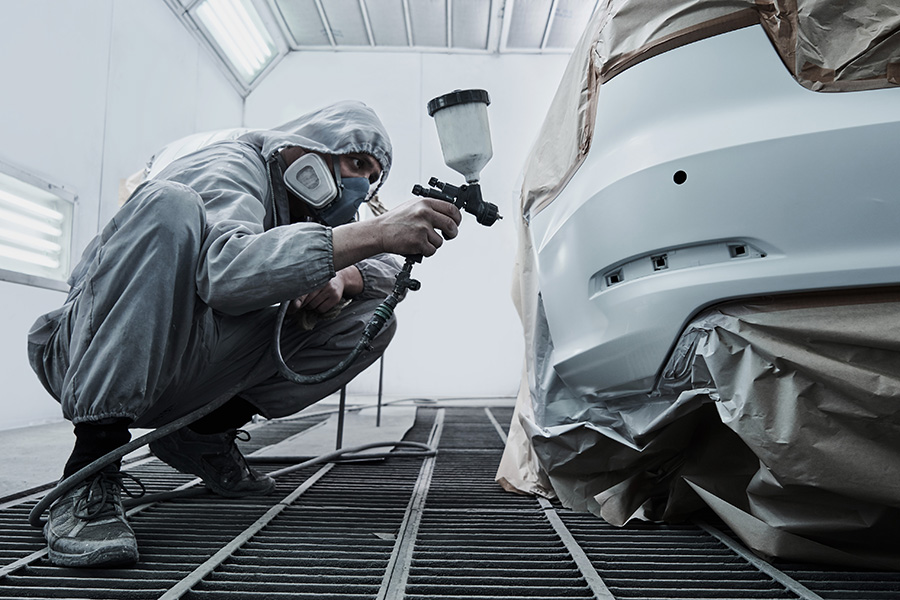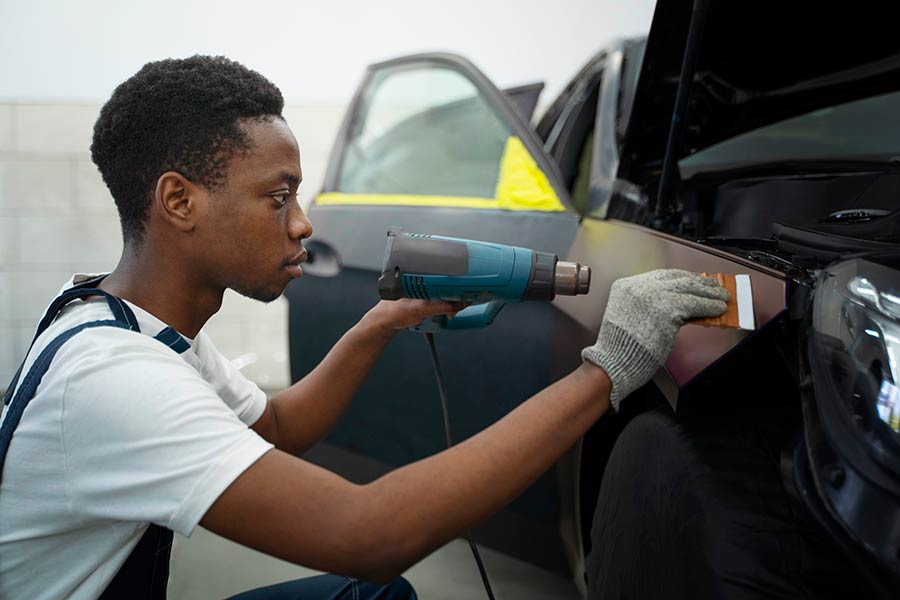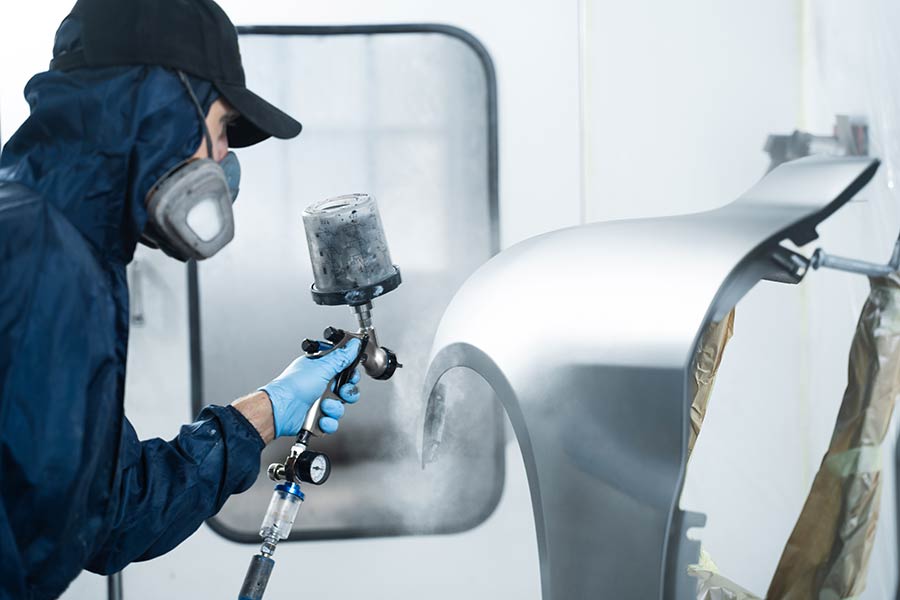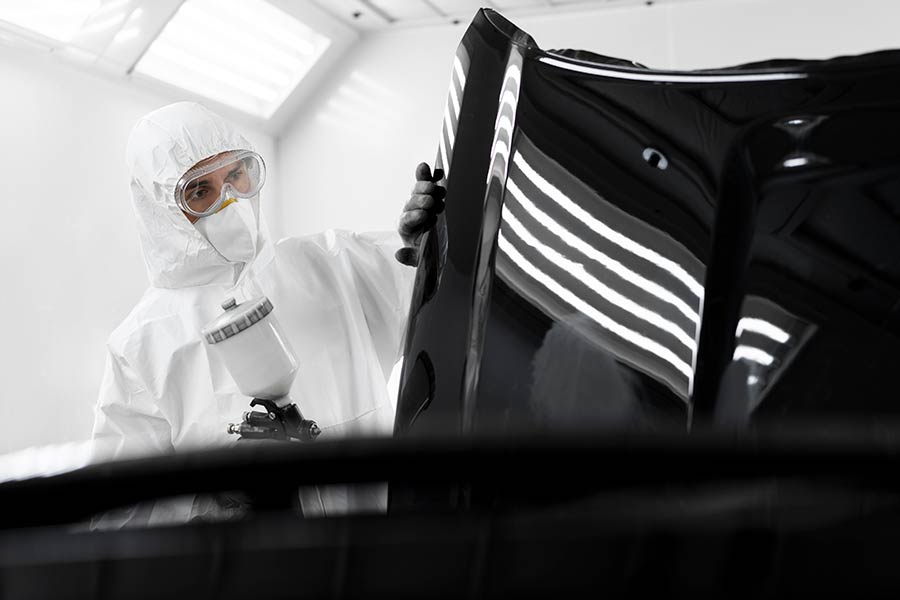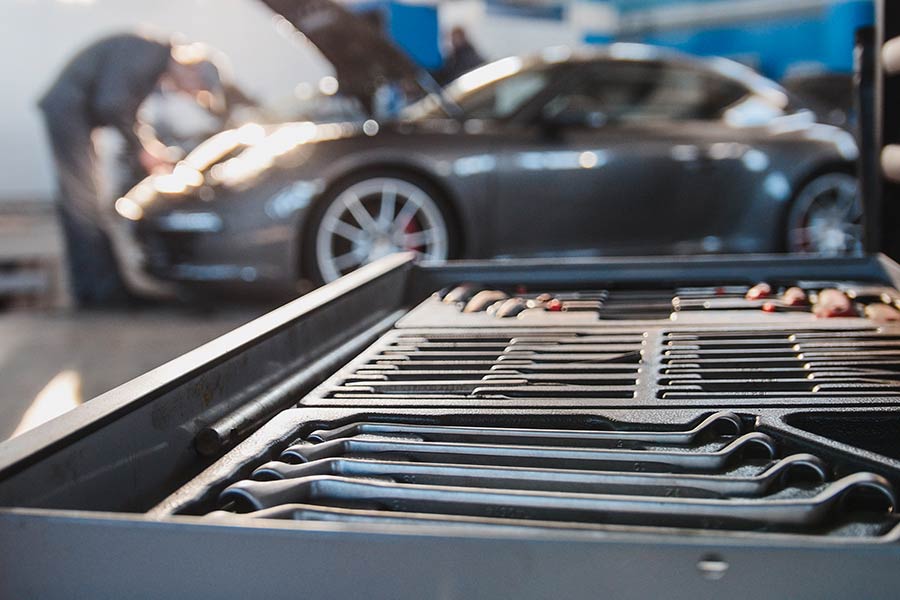Finding the best body shops near me can feel like searching for a needle in a haystack. Cars have been around since the late 1800s, and ever since, folks have needed reliable places to fix them up. We all want our rides looking sharp after a fender bender or a nasty scratch. Locating a trustworthy shop nearby is like hitting the jackpot. It's all about convenience, expertise, and getting back on the road fast.
Key Takeaways
- Look for certified shops: Certified body shops have trained staff and use quality parts. This ensures safe and reliable repairs.
- Choose wisely: Check reviews and ask for recommendations to find a trusted shop near you.
- Know common damages: Understand what repairs you might need, like dents or scratches, so you can discuss them with the shop.
- Quality matters: Good repairs keep your car safe and looking new. Don't settle for less.
- Post-repair checks: After getting your car fixed, check the work done. Make sure everything is as promised.
- Stay informed: Knowing about car repairs helps you make better choices and saves money in the long run.
Importance of Certified Shops
Specialized Training and Tools
Certified shops have technicians with specialized training. This training helps them fix cars correctly. They learn how to use special tools for repairs. These tools make sure the work is done right.
Using advanced tools helps in getting high-quality results. Technicians can work faster and more efficiently with these tools. Their specialized training means they know exactly what to do. This leads to quicker service for customers.
Safety and Precision in Work
Precision is crucial for maintaining vehicle safety standards. Certified shops focus on doing precise work. This ensures that the car remains safe to drive.
Meticulous work prevents future issues. If the job is done carefully, it reduces the chance of problems later. Following safety protocols during repairs is essential. It keeps both the technician and the car safe.
Role of Certified Parts
Using certified parts offers many benefits. These parts are known for their durability and reliability. They help the car last longer without issues.
Certified parts also maintain the car's warranty. If non-certified parts are used, it might void the warranty. With certified parts, there is an assurance of quality. Car owners can trust these parts to perform well.
Choosing the Right Shop
Community Trust and Satisfaction
Customer reviews are vital for building trust. They show real experiences. People often read these reviews before deciding on a shop. Word-of-mouth recommendations also play a big role. Friends and family share their honest opinions, which helps in making choices. A shop's reputation in the community matters too. It shows how well they serve their customers. Being involved in local events can boost this reputation.
Preserve Car’s Value
Proper repairs keep a car's resale value high. When a car is fixed correctly, it looks better to buyers. High-quality work enhances long-term performance. This means fewer problems later on. Professional repairs also preserve the car's look. Aesthetic appeal is important when selling a vehicle.
Factors in Shop Selection
Several factors matter when picking a body shop:
- Location: Close shops save time.
- Reputation: Good reviews are crucial.
- Pricing: Fair prices attract customers.
Checking for certifications is essential. They show that technicians know their job well. Affiliations with known organizations add credibility too. Customer service and communication are key aspects as well. Friendly staff and clear updates make the process smoother.
Understanding Common Damages
Inspecting for Body Issues
Identifying damages on a car involves more than just looking at it. Visible dents and scratches are easy to spot. However, hidden issues may lurk underneath. Professionals use special tools to find these problems. Thorough inspections ensure all damage is noted before repairs start.
Technology plays a big role in this process. Advanced scanners can detect issues that eyes might miss. This ensures nothing gets overlooked during the inspection.
Impact on Original Paint
Improper repairs can harm the car's paint. Scratches or mismatched colors can ruin its look. It's crucial to match paint colors accurately. This needs skill and patience.
To preserve the original finish, experts use techniques like blending. Blending helps new paint mix smoothly with the old one. This keeps the car looking as good as new.
Risks of Ignoring Repairs
Ignoring needed repairs can be dangerous. Damaged parts might cause accidents if not fixed quickly. Safety hazards increase when cars are not well-maintained.
Neglecting repairs can also lead to expensive fixes later. Small issues often grow into bigger problems over time. Ignoring damage might lower your vehicle's performance and efficiency.
Quality Repair Benefits
Preventing Rust and Corrosion
Rust can damage your car badly. During repairs, body shops use special methods to stop rust. They clean the metal parts first. Then, they apply rust-proof paint or sprays. Timely repairs are crucial to avoid corrosion. If you fix dents quickly, rust cannot start. After repairs, shops often use protective coatings. These treatments help keep your car safe from moisture.
Why Quality Matters
Quality repairs offer many benefits. They ensure your car stays in good shape for a long time. A well-repaired vehicle is safer and more reliable. It protects you better during accidents. Investing in quality work saves money over time. Cheap fixes may fail, leading to more repairs later. Spending a bit more now can prevent bigger issues.
Professional Help Indicators
Finding a good body shop is important. Look for signs of professionalism. Certifications show that the shop meets high standards. Awards can also indicate quality work. Clear estimates are crucial too. They help you understand what you're paying for. Knowledgeable staff make a difference as well. Friendly workers who explain the process are valuable.
Post-Repair Considerations
Maintaining Car After Repair
After repairs, keeping your car looking good matters. Regular washing helps maintain the paint. Use gentle soap and soft cloths. Waxing every few months protects the finish. Check for any new dents or scratches.
Routine checks ensure repairs last. Inspect tires and brakes often. Follow care instructions from the shop. They know what works best for your car's condition.
Duration of Repair Process
Repair time varies. Part availability affects it a lot. Some parts may take longer to arrive. Common repairs like bumper fixes might take a few days.
Clear communication is key. Ask the shop about the timeline. Knowing when your car will be ready helps you plan better.
Repairing Older Cars
Older cars have unique challenges. Finding compatible parts can be tricky. Many parts might not be in stock anymore.
Specialized knowledge is crucial for vintage models. Mechanics need to understand older systems well. They must handle these cars with care to avoid damage.
Final Remarks
Finding the right body shop is like picking a trusty sidekick. You want one that's certified, skilled, and has your back. You've learned the ropes about choosing wisely and understanding those pesky car damages. Now, you're ready to dive into the world of quality repairs. It's your ride, after all, and it deserves the best care.
After repairs, keep an eye on things. Your car's health is in your hands! Don't let small issues snowball into big headaches. Trust your gut and choose a shop that feels right. Ready to get started? Hit up local shops and ask questions. Your car will thank you, and you'll drive away with peace of mind. So, what are you waiting for? Go find that perfect match!
Frequently Asked Questions
Why should I choose a certified body shop?
Certified shops meet industry standards. They have trained technicians and use quality parts. It's like trusting a chef with a Michelin star; you know you're getting the best.
How do I pick the right body shop?
Look for reviews, certifications, and warranties. Think of it as dating—do your research and find one that suits your needs.
What are common car damages after an accident?
Dents, scratches, and bumper damage are typical. It's like when you drop your phone; the screen might crack or get scratched.
What benefits come with quality repairs?
Quality repairs ensure safety and maintain vehicle value. It's like having a sturdy umbrella in a storm—you stay protected and dry.
What should I consider after repairs?
Check the repair quality, keep records, and understand warranty terms. Think of it as checking your receipt after shopping—you want to ensure everything's correct.
Are all parts used in repairs the same?
No, there are OEM and aftermarket parts. OEM parts are like the original recipe, while aftermarket ones are variations.
Can I drive my car immediately after repairs?
Yes, but confirm with the shop. It's like waiting for paint to dry; sometimes you need patience before it's fully ready.
